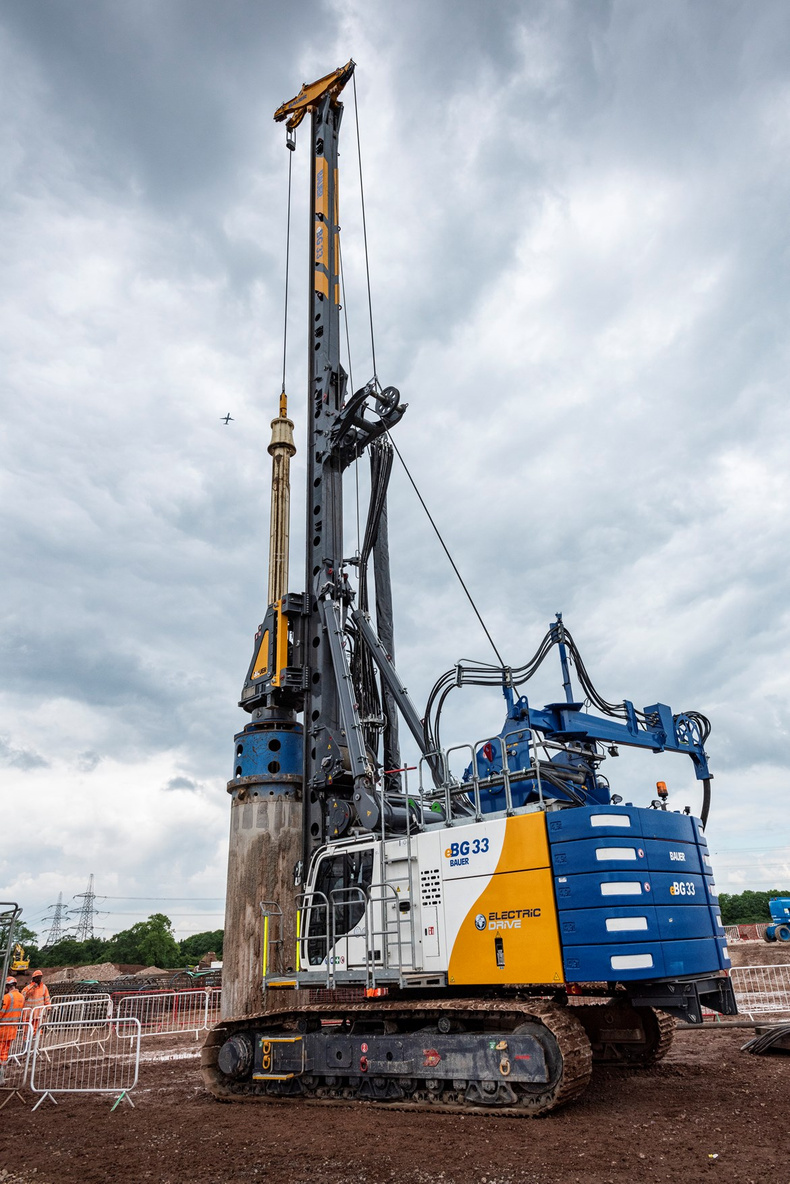HS2 trials electric drilling rig in bid to cut carbon

HS2 Ltd 's construction partner Balfour Beatty VINCI Joint Venture (BBV), is currently trialling the world 's first all-electric, high-capacity drilling rig on a construction site in Warwickshire.
It is part of the Joint Venture 's plans to meet HS2 Ltd 's ambition for diesel-free construction sites.
The 100 tonne BAUER eBG33 drilling rig creates an overall reduction of 1292kg CO2 per day compared to a traditionally powered rig and also reduces noise by 50 per cent.
In terms of performance, the rig is able to carry out exactly the same tasks as a traditional rig.
This new machine is being used by BBV 's deep foundations contractor SB3 (a Joint Venture between Bachy Soletanche & Balfour Beatty Ground Engineering), and works alongside a diesel-powered rig to construct large diameter piles, with the aim of demonstrating that heavy, electric-powered construction plant can perform the same tasks as traditional machines.
Andrea Davidson, HS2 's air quality manager, said: “We are proud to be working with our supply chain and leading manufacturers to drive a step change in the UK construction industry, demonstrating the viability and benefits of emissions-free heavy electric plant.
“Being at the forefront of a ground-breaking trial like this is another step on our journey to achieving our target of all diesel-free construction sites by 2029, and net zero carbon from 2035 - helping HS2 to become the most sustainable infrastructure project ever delivered. ”
The BAUER eBG33 replaces the diesel engine drive with a powerful electric drive.
The environmental benefits include reduced exhaust and noise emissions, high energy efficiency due to modern three-phase asynchronous motor and flexibility through an integrated frequency converter.
BAUER are also trialling different E-connection concepts and an innovative concept for set-up operation via an autonomous secondary drive which is independent of the power supply.
